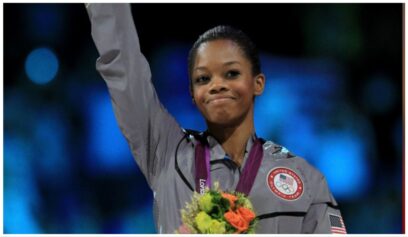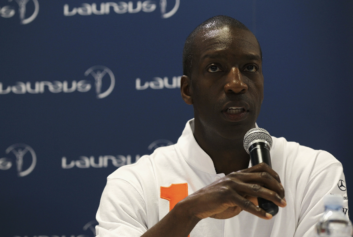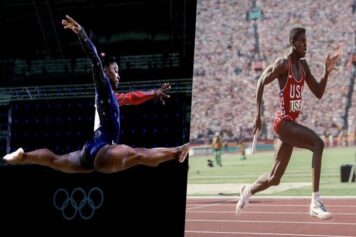In the 1976 Montreal Summer Olympics, a handful of future greats adorned the red, white and blue and blessed the boxing world with their pugilistic abilities.
Leading the pack was a smooth Marylander named Ray Leonard, who went on to win the gold medal in the light welterweight division. USA Boxing took home five gold medals in ’76 and cemented the burgeoning legacies of Michael Spinks, Leon Spinks, Leo Randolph and Howard Davis, Jr.
Another great fighter took the trip to Canada and although a lightweight alternate, after losing to Howard Davis, Jr. at the Olympic Trials, Aaron Pryor would become one of the greatest to ever lace up the gloves.
Pryor, from the hardscrabble streets of Cincinnati, Ohio and brought a confidence to the squared circle that is a trademark of Ohio fighters. He had a record of 204 wins and 16 losses as an amateur and won the National Amateur Athletic Union (AAU) Lightweight Championship in 1973.
In 1975, he won the National AAU Lightweight Championship again, along with a Silver Medal at the Pan American Games. Pryor beat future champion Thomas The Hitman Hearns in the lightweight finals of the 1976 National Golden Gloves.
Pryor tore up the light welterweight division starting in late 1976 as a professional, eventually going 24-0 with 22 knockouts before facing Antonio Cervantes for the WBA title. It took only four of the planned 15 rounds for The Hawk to begin a reign of dominance that would last years.
In 12 bouts as the WBA World super welterweight champion, Pryor knocked out every opponent, with only his fights against Miguel Montilla and Alexis Arguello going past 11 rounds.
However, the November 12, 1982, title defense his title against Arguello, dubbed The Battle of The Champions was rife with controversy. Arguello, who was the favorite, attempted to become the first boxer to win world titles in four weight divisions.
The 14th round KO of Arguello was debated as Arguello landed a punch in the thirteenth round that to many seemed to stun Pryor. Between the thirteenth and fourteenth rounds, HBO’s microphones picked up the voice of Pryor’s trainer, Panama Lewis, telling cut-man Artie Curley to, “Give me the other bottle, the one I mixed.”
Pryor was seemingly revived going into the 14th round and unleashed an onslaught of punches that forced the referee to call an end to the bout. Arguello collapsed to the canvas near the ropes, where he lay for several minutes.
The two eventually fought a rematch in 1983, and Pryor knocked out Arguello again, this time in the 10th round, laying waste to all speculation regarding their first encounter and announcing his retirement simultaneously with Arguello after the fight.
That didnt last long, though. Pryor was soon back in action, beating Canadian Nick Furlano for the IBF World junior welterweight title.
Pryor had some problems with the lawduring his career, which mostly swirled around his drug addiction in the mid ’80s. In December of 1985, he was stripped of the IBF title for failure to defend and after 29 months out of the ring, Pryor, insisting that he clean from drugs and attempted a comeback.
It was during this time that he suffered his lone loss against fellow Ohioan and journeyman fighter Bobby Joe Young via a seventh round knockout. He looked like a shell of his former greatness.
In April 1990, Pryor was ordered to undergo two years of treatment for drug abuse. He entered a no-contest plea to a charge of possessing illegal drug paraphernalia, a crack pipe, which was found in his car after he was stopped by the police in Cincinnati.
He bounced back, fighting three more times and knocking out his opponents per his usual brilliance.
The Hawk is a cautionary tale of the ravages of addiction, and a testament to the greatness that can be achieved after a personal stumble. He reportedly kicked his drug habit in 1993, remaining clean until his death a few days ago.
Pryor was inducted into the International Boxing Hall Of Fame in 1996 and was voted as the Greatest Junior Welterweight in boxing history by the Houston Boxing Hall Of Fame in 2014.
Salute The Hawk! He was one of the greatest and most under-appreciated talents that ever stepped into the ring.



